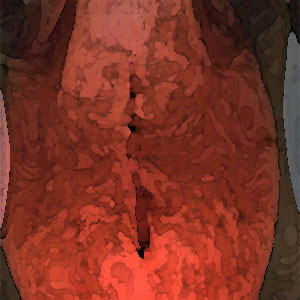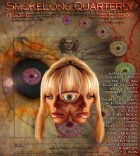Moth, light as a feather, often drifted out of the open classroom window as the teacher lectured on gravity and other things that meant nothing to her.
To stop her, they opened up space in Moth’s upper arms, in the fleshy part of her legs and inside the smooth whiteness of her belly. Carefully, they inserted small weights, designed to tether her feather-light body to earth.
When Moth awoke, invisible hands held her down, locking her into position. Outside, the sky shone clear blue, a slight breeze waved the flag, visible from her hospital window, but with each breath, Moth felt herself sinking further into the crisp flatness of the sheets.
At home, she would sit outside for hours, tracing her scars with one fingernail. She refused to go to school. She sat and tried to remember the lightness of her body, the buoyancy of her movements, the way her breath would catch when she rose up. Her mother joined her outside almost every day, bringing her little presents, chattering to her about the miracles of modern medicine. Today she brought a bowl of plums, silvery-blue with cold, and a knife. Moth watched as her mother took the knife, peeled away the smooth, taut skin, exposing the white flesh underneath. She watched her mother pop one slice after another into her red mouth.
Once alone, Moth inserted the sharp tip of the knife into her left leg. Peel back the skin, expose the flesh, scoop out the dead weight. She worked quickly, pausing to wipe the blood from the blade, from her fingers. The breeze grew stronger, making the hot pain of it matter less. The weights in her belly were the deepest. Breathe, she told herself. Cut, breathe, cut.
As she carved out the last piece, the breeze gathered her up and the knife fell from her hand. She rose, breathless, cradled by this bit of wind, turned gently by that, and folded herself into the arms of the sky. She watched as her house grew smaller and smaller, and finally disappeared from sight.


